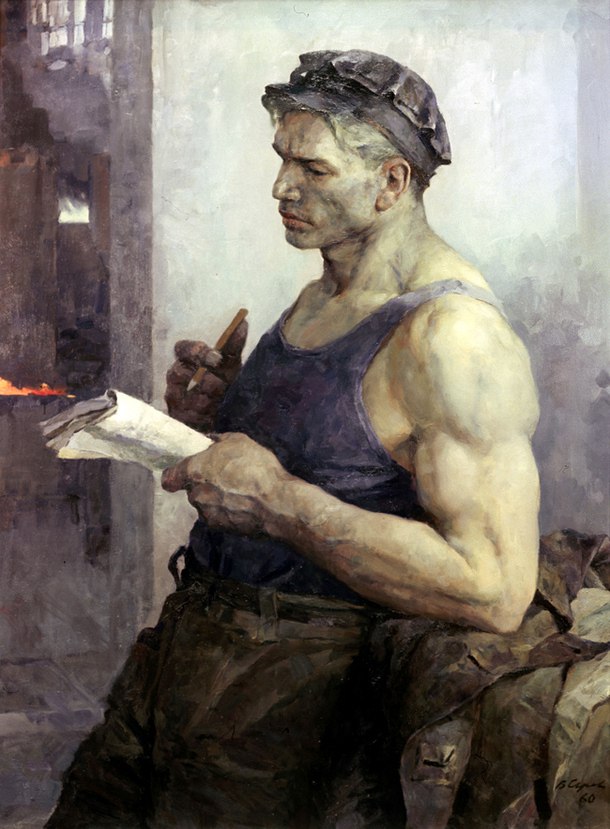Those that know me know I work a lot on prolewiki.
Online resources are a dime a dozen, and I notice they tend to focus on the beginner stuff. And in most reading lists / youtubers / communities / other repos, it all revolves around marxism 101.
It got me to ask how can we talk about the more advanced stuff on prolewiki? Learning the basics will only get you so far. There’s only so many different ways and so many different people you can teach the basics to – if they’re serious about their marxist studies, people will have to look into more advanced stuff at some point, beyond the basics.
But then I started thinking, what is actually advanced marxism? Past the beginner level. Isn’t the point of marxism that we make it accessible to everyone, thus making complex concepts feel basic and at anyone’s reach?
Perhaps basic marxism is its three components: the philosophy, economy, and class struggle. And anything past that such as how to apply marxism yourself or theory on decolonisation, feminism, LGBT issues etc.
But making your own analyses and understanding the theory of further developments since Marx are two different things for the student of marxism.
Or perhaps it’s the same three components, but in more details – delving into the history of philosophy, learning about the class struggle in different countries and periods, learning about other economy theory?
What is advanced marxism, and how can we bring it to the people over the internet?
Advanced Marxism is when the government (who is already doing a lot of stuff: ie. communism) start doing EVEN MORE STUFF. Till there’s no stuff left to do.
I think maybe it’s like academics - you have your intro, foundational work, and then you have specializations.
Like, in-depth Marxist economics or sociology are very advanced, but sharply different than guerilla warfare or whatever else.
yes, but what are examples of such concepts?
Idk that I’m advanced enough to be helpful, unfortunately. I think Mao’s split of practice/theory is a helpful first division of the kinds of advanced knowledge, though.
I can’t cite concrete examples off the top of my head, but some hypothetical ones for economics would be going beyond the fundamentals of Marxism to apply it to how some specific section of the economy operates (i.e. software development, clothes, food) from a Marxist lens, and for sociology it could be dissecting the material and social relations in existing sections of society (i.e. slums, suburbs, metropolitan areas, prisons) or comparatively between societies (those in Brazil vs USA vs Cuba). Those sound good for developing a “deep” understanding.
I think the issue is that the possibilities are very vast, but it quickly becomes both less accessible and harder to produce, as you need solid a understanding of both Marxism and the specific subject (and a lot of effort) for either writing it or understanding it. Considering the prolewiki is inspired on wikipedia, I’d say that the place for “advanced” materials is usually the linked sources and references and that’s usually way less accessible to a lay person. I’m not sure if the website would be the place for “in-depth analysis of the dot-com/AI crash caused by venture capitalists” or “origins of metropolitan homelessness” for instance, but that’s usually what I think of as advanced. Though I have my biases there, as I’m generally not a fan of staying only on the safe bet of philosophy.
Most of them will probably be Hegelian. Object-oriented metaphysics is the Aristotle way. Process-oriented metaphysics, a la Whitehead, gets started in the imperial core by Hegel. The idea that objects don’t exist as such but only the processes that the universe proceeds through. Engels goes into this when he writes about dialectics in nature.
Contradiction becomes much more nuanced, and therefore advanced, when you abandon object-oriented metaphysics.
Then you’ve got negation and negation of negation. You’ve got propaganda, advertising, psyops, and everything related to propaganda, which is itself incredibly heady and advanced when you unpack it.
But really, advanced Marxism is Marxism applied to the application of Marxism. Dialectical materialism studying the interrelations of everything and the reactions to change and therefore the reactions to examination and the reactions to reactions - it’s complex and advanced because you have to have a grounding in how to make complexity simple enough to deal with without simplifying it to metaphysical objects.
Hope this helped. I can’t tell.
I believe what one could consider “advanced Marxism” is the application of Marxism to philosophy, history and economics, or rather the dialectical method of thinking to these branches of science.
One of the reasons these are some of the fields that are used more by Marxists is because of the need that Marx had to prove the nature of capital and profit, and so on, but in reality it could be applied to anything and every branch of science could be expanded and improved with dialectics, just like Engels did with his dialectical study of the natural sciences, or how Marx applied it in his later years to the study of mathematics and calculus. While I don’t think this expanse is unnecessary, it’s not as important to understand the class struggle aspects that could be translated into praxis, so that’s why sticking with philosophy, economy and history are more important.
If you’d want to go into either of those, you’d need to get a basic understanding of Spinoza, Ricardo, Hegel, Descartes, Adam Smith, and probably a few others. Still, I think understanding some basic Hegel you can get to understand dialectics, and I haven’t tried reading Das Kapital yet, but I guess you could get something from it even though you have very basic economics.
It’s all nothing without putting it to practice tbh. I think practicing actual Marxism-Leninism is what’s lacking. Plenty of academic works exists if you know where to find them
Not that I’m against making stuff more accessible, but I find that works best when allied to actual parties and such. In Brazil for instance plenty of my comrades in the Brazilian Communist Party (PCB) are translating works from their source Russian texts and publishing them online and to books. Helps fundraise too.






